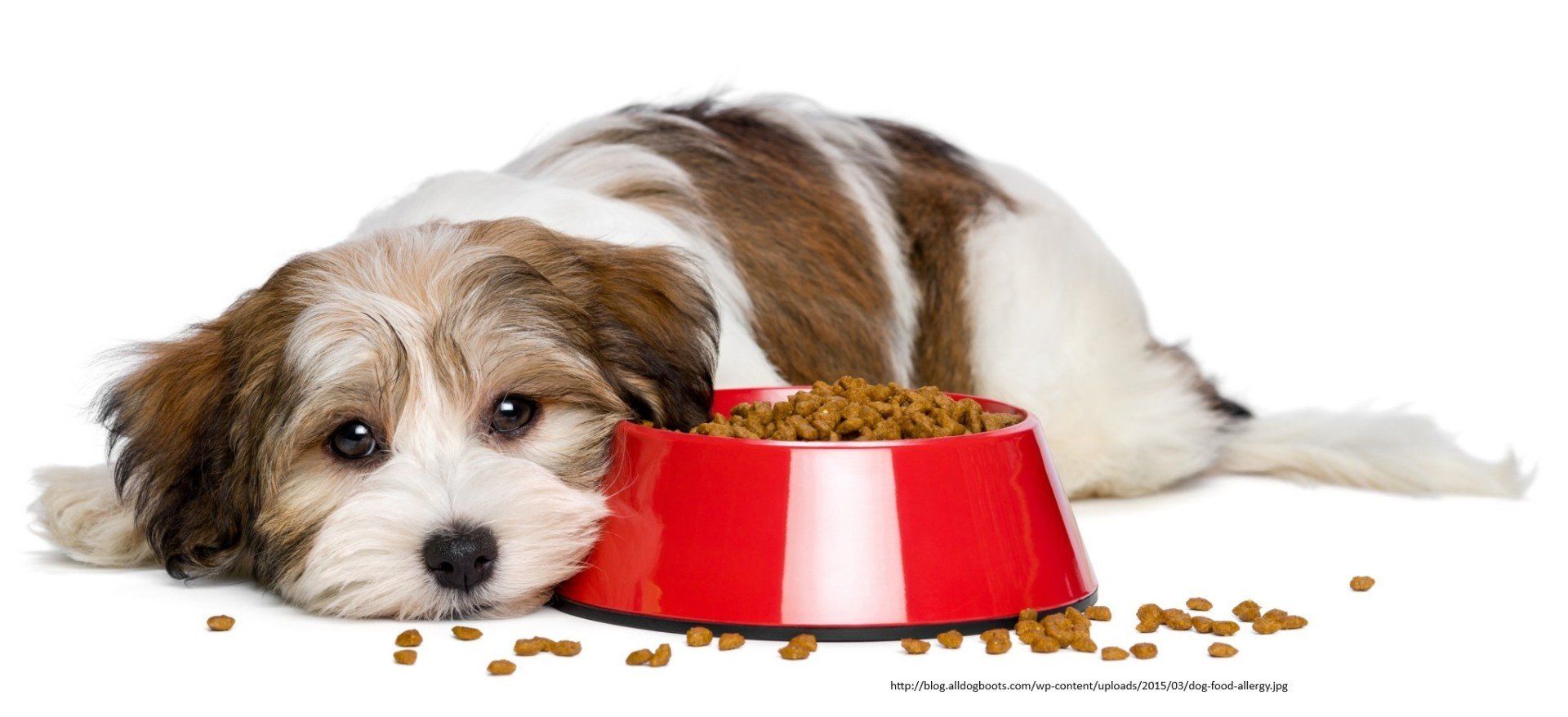Food Intolerance and Your Pet

My pet may have a food intolerance - what now?
If your pet is exhibiting clinical signs such as recurrent skin and ear problems or chronic gastrointestinal issues such as vomiting or diarrhea, these could be secondary to intolerance of their food. This adverse reaction may be a food allergy, or your pet could be intolerant to a certain component of its current diet. Food allergies develop over time and are usually caused by something your pet commonly eats rather than by a recently introduced food. Changing to another brand of pet food rarely helps as many ingredients are common to many pet foods. Many over-the-counter diets have also been found to be contaminated with additional ingredients, despite their label claim. For this reason, we may recommend a trial of a novel protein diet such as rabbit, duck, or venison or what is called a hydrolyzed diet which is where the protein is shortened during processing to virtually eliminate the chance of an allergic reaction. Here are some general guidelines of a "food trial":
- The prescription diet must be fed exclusively. No other foods or treats are allowed.
- Make sure all family members and friends know that your pet is receiving a special diet.
- If you need to use treats for rewards or training purposes, use some of the prescription diet.
- If pills are prescribed for your pet, do not hide them in anything other than the prescribed diet or veterinary-approved treats which would be acceptable for a food trial.
- Flavored products, such as those found in many oral monthly prophylactic heartworm tablets and other medications, toothpaste, and certain plastic toys, must also be avoided during this regimen. We will oftentimes use a topical heartworm preventative during the period of the food trial.
- If there are other pets in the household of the same species, they should be fed the same diet, or fed separately.
- If your pet is in the habit of eating food dropped by young children in the household, keep your pet out of the room at mealtimes. Do not let your pet lick the plates.
- It may take six to eight weeks to see any improvement in your pet depending on the problems.
If you believe your pet may benefit from a food trial, please schedule an examination so that we may evaluate prior to starting and answer any questions or concerns you may have.

